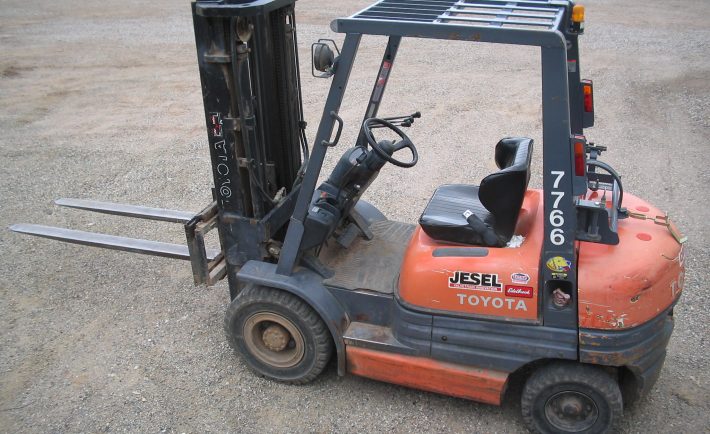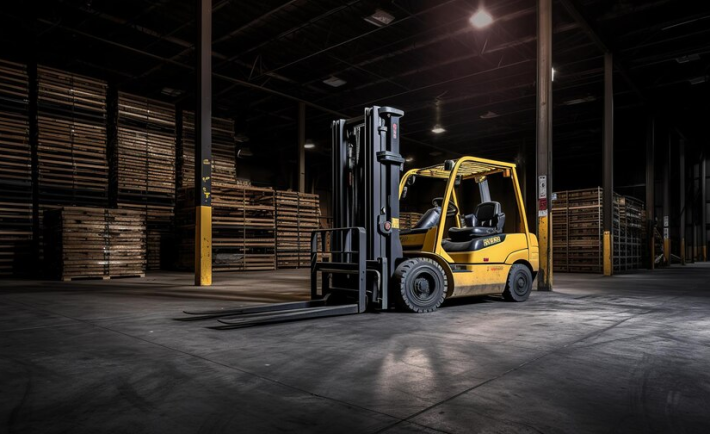Forklifts are invaluable for efficiently moving and managing heavy materials, making them a critical part of your business operations. Keeping every part of your forklift in good condition is essential for maintaining safe and reliable operations. Regular maintenance not only protects your workforce by reducing the risk of accidents, but it also saves you money by preventing major repairs or full equipment replacements. Here are five key steps to keep your forklift parts in peak condition.
1. Engage Certified Technicians for Repairs and Use Quality Replacement Parts if Necessary
Workers without professional training in forklift maintenance should not attempt to do any repairs on forklift parts. Doing so creates the risk of damaging the forklift further or accidentally causing injury to themselves or their coworkers. It’s better to contract certified technicians to help you with any repairs, maintenance, and part replacements.
If a forklift part can no longer be repaired or maintained, it’s advisable to replace it entirely to keep the machine in good working condition. Look for a supplier that offers high-quality, reliable forklift parts that match your forklift’s specifications. Choosing a reputable supplier ensures you get components that will maintain performance, enhance safety, and extend the lifespan of your equipment.
2. Establish a Preventive Maintenance Plan and Schedule
Preventive maintenance is regular maintenance that focuses on preventing potential failures and issues with the equipment. This is opposed to reactive maintenance, wherein maintenance is only done after an issue has already occurred with the equipment. Performing regular preventive maintenance is more efficient and typically more affordable than reactive maintenance; it also prevents potential workplace accidents or injuries by preventing any issues from occurring in the first place.
A preventive maintenance schedule must be established to ensure that your forklift is constantly in top form. How often your forklift needs preventive maintenance depends on a number of factors. For example, older forklifts may need more frequent maintenance, as well as forklifts that go through regularly intensive applications. It’s also important to check the forklift’s past maintenance results and previous issues; if a particular part is consistently breaking down, it may be time for a closer inspection or an outright replacement of that component.
3. Conduct Daily Pre-Shift or Pre-Operation Inspections
It is recommended for forklift operators to conduct an inspection every 24 hours or before the beginning of every shift. Not only is this to ensure that every part of the forklift is working smoothly, but it’s also to protect all workers from potential incidents. When conducting these inspections, be sure to check the following:
- The safety features, such as the seatbelt, overhead guard, backup alarms and lights, horns, finger guards, brakes, and steering wheel.
- The fuel system, if the forklift uses gas. These include the propane tank, pressure relief valve, regulator system, and ventilation.
- The battery system and electrical components, if the forklift is electricity-powered. These include the battery compartment, electrolyte levels, charging system, battery discharge indicator, motor, and moisture protection.
4. Keep the Forklift Clean
Regularly cleaning the forklift gives you the opportunity to inspect its parts and helps prevent unnecessary wear and tear from any dirt and debris that has accumulated. You can start by wiping away any dirt or lint on the surface of the forklift with a cleaning cloth or brush. Don’t neglect any crevices and other spots that are hard to reach. If you’d like to use a cleaning agent or solvent, make sure that it’s noncombustible. Solvents with a high flash point (above 100°F/38°C) are recommended, while those with a low flash point (below 100°F/38°C) should not be used.
If you have a gas-powered forklift, use a pressure washer to get rid of any stubborn debris and stains. Hot water can also get rid of any oil and grease. Be sure to let the forklift dry before attempting to use it again, as using the machinery while it’s damp can cause complications. On the other hand, air compressors are a safer option for electricity-powered forklifts.
5. Train and Certify Your Forklift Operators
All forklift operators must be trained and certified to ensure proper usage of the forklift, avoid damage to the forklift and its components, and prevent any workplace incidents and injuries. It is through forklift operation training that operators learn how to properly operate, inspect, maintain, and handle the forklift. They will also learn the ins and outs of the forklift, such as its parts, its load capacity, storage procedures, and the risks involved with operating a forklift and how to mitigate these risks. Under no circumstances should someone without the proper training and certification try to operate a forklift.
The Importance of Regular Maintenance and Replacement
Maintenance checks for your forklift are mandatory for the sake of both safety compliance and workplace efficiency. Regular inspections are vital to ensure that all forklift parts are in good condition, so that they may be replaced with new forklift parts if necessary. Moreover, it’s equally important to choose the right manufacturer, as getting low-quality replacement components will only likely cause more problems in the long run.



